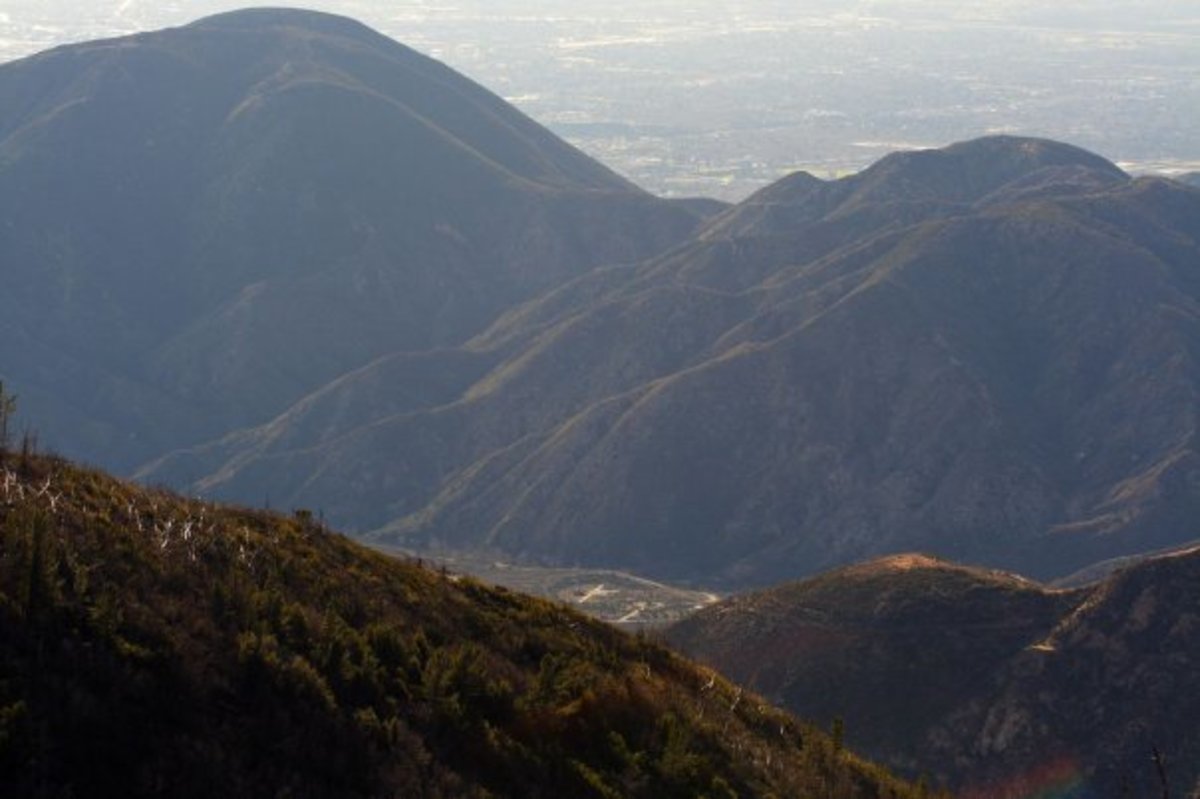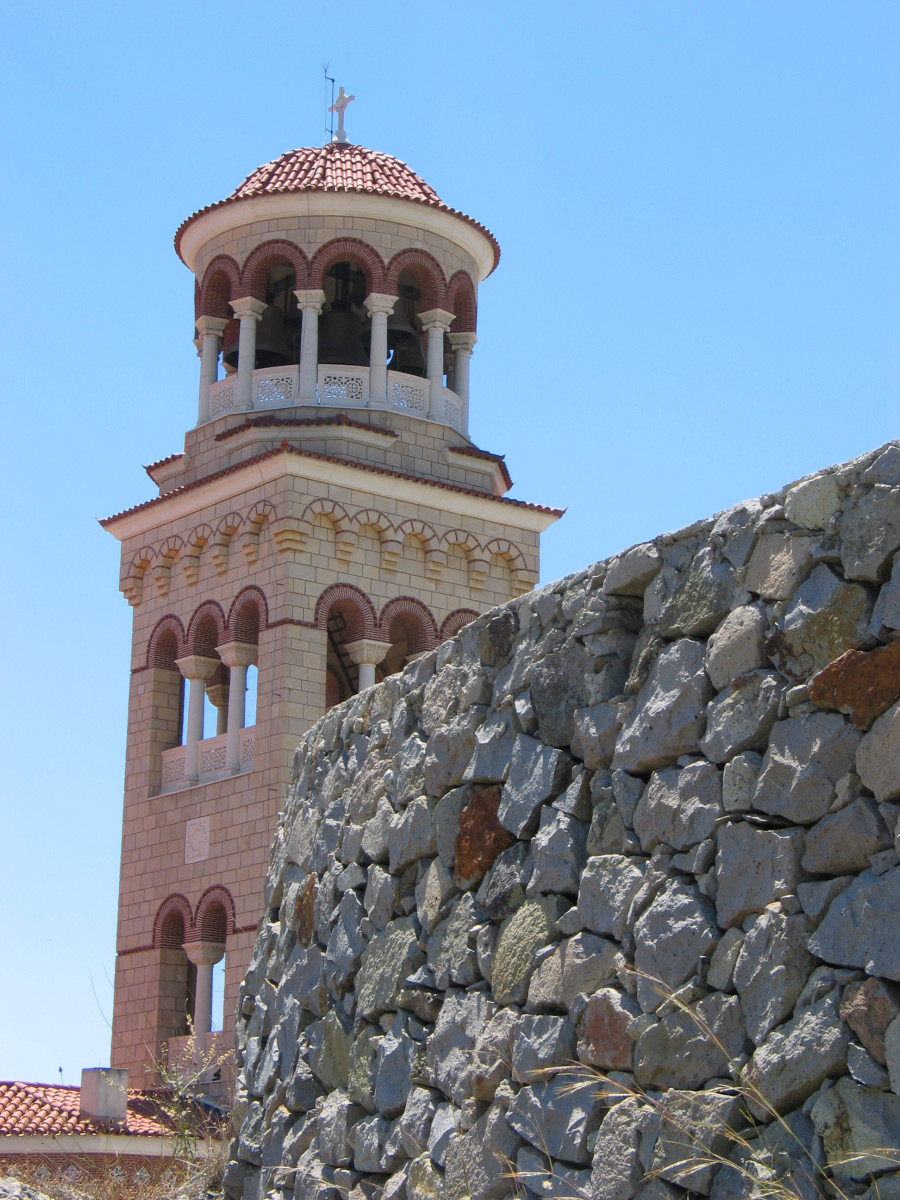Living For What Matters Most - Part 2

From Glory To The Grave
A Steep Offer. During those dark days, God’s presence was at a premium. Even if the LORD assured Gideon, “I will be with you,” it was a hard pill to swallow. Was the angel for real? Was God breaking his long silence? Did he mean what he said? Would he truly “…strike down the Midianites, every one of them” (Judg 6:16b) in the company of God? He needed positive proof. After all, it’s been an awful while since he worshipped the God of Israel. And for seven years, the pagan worship of Baal has got the nation nowhere. Favor was a forgotten word. Gideon asks the angel for a sign that he is who he says he is. It was a big favor. It’s worth the stretch to see a favorable sign from the LORD once again. He also pleads that the angel promise to stay put as he prepares his present for him. He is saying, “Please don’t go away LORD, I’ll be right back.”
In all this excitement, the man doesn’t miss a beat. “So Gideon went into his house and prepared a kid, and unleavened cakes from an ephah of flour; the meat he put in a basket, and the broth he put in a pot, and brought them to him under the oak and presented them” (Judg 6:19). We need to realize that the offering of food was extra-sized. Gideon presented a fiesta of food. It was much more than a happy meal. An ephah is an ancient Hebrew dry measure for grain. It’s equivalent to one bushel or 60 pounds of whole-wheat flour.[i] A bushel of flour makes about 90 one-pound loaves of whole wheat bread[ii] to go with a basket full of meat.
The angel instructs him to set the offering on a rock. After pouring the broth over it fire springs up from the rock and the offering is consumed in an instant. Like the popular chef Emeril Lagasse, he strikes the food with his staff and says, “Bam!” And here’s Gideon who just prepared an enormous meal that involved the act of slaughtering, roasting, kneading, baking, mixing, and boiling. On hindsight, he could’ve just given the angel the flour without having to knead and bake it. He probably could’ve placed a live goat on the rock. Maybe even set the ingredients of the broth on the side. Why even bother to mix and boil it? But what does he do? He went through the trouble of personally preparing all this food without knowing how an angel enjoys a meal. Maybe that’s what it means for an angel to handle food “to go.” For right after he consumed the meal the angel of the LORD immediately vanished from sight.
We come to understand that Gideon’s present was a sacrificial act of worship. In the midst of a terrible famine, a shortage of wheat, and a time when livestock was in short supply, he offers the LORD meat, bread, and broth. Calculate it if you will. This was a fortune worth of food offered at a time when people were desperate and in want. Gideon did not shortchange his sacrifice. He spared no expense when he offered his present to God. It would cost him the best of his livestock and harvest. You can’t cut corners when you want to offer a sacrifice that is holy and acceptable to God in worship (Rom 12:1). Gideon is beginning to break the hard ground of unbelief by trusting the LORD in spite of his sorry situation. We rarely grow much during good times. Throughout history God’s people have experienced the greatest growth and kingdom advancement under the pressure of persecution. Gideon gets to know God’s nature, character, and power during difficult times. He saw the glory of God best in the darkest corners of his world. How costly is your worship when it comes to your personal time, finances, and resources? What is the shape of your sacrifice? What are you giving up to gain? We are worshiping and glorifying God when we begin to believe and become everything he created us to be.
III. Who Gets The Glory?
Third, who gets the glory? The table turns with God on Gideon’s side. Through a series of divine signs and tests to confirm his commission, this mighty warrior sets out to fell and destroy Israel’s enemy. When Gideon sounded the trumpet, 32,000 soldiers throughout the land rallied around him to do battle against Midian an enemy “as thick as locusts; and their camels were without number, countless as the sand on the seashore” (Judg 7:12). In spite of these overwhelming odds, God made certain that Israel would not grab the glory from him. He wilted down Gideon’s troops to a mere 300 men. And when the enemy numbering 135,000 was conquered with a hand full of men, guess who got the glory? It was made known to Israel, its enemies, and to us that victory was won not by human might, nor by power, but by God’s Spirit (Zec 4:6). Gideon ultimately fulfilled his glorious purpose in life as a mighty warrior. He was rescued from a life condemned to beat out wheat in the wine press and commissioned to meet out destiny in the LORD’s presence.
Reveal True Essence. Imagine a Philippine mango if you will. What is the glory of this fruit? Its bright yellow color? Its heart-shape form? Its smooth textured peel? Although each exterior aspect of the mango allows us to distinguish it from other kinds of fruit, none of these descriptions come close to revealing its true essence. To experience the true glory of a mango is when one gets to savor its juice. How do we get juice from a mango? We have to slice the fruit and squeeze the juice out. This process of extracting the juice radically alters the mango’s entire appearance. It will never be the same again. And it is impossible to bring out the glory of a mango without slicing and squeezing it.
Likewise, the glory of a person is not readily seen at first glance. Who would have guessed that Gideon had it in him to be the mighty warrior he was destined to be? His God-given potential was hidden beneath the surface. God’s glorious purpose for us is hidden inside these “jars of clay” that we call our bodies (2 Cor 4:7-10). When God brought out the glory of Gideon, he had to slice what was left of his life under the hardship of his enemy and squeeze the essence of his being to seize the victory. Bringing out Gideon’s glory changed him forever. He made his mark in this world by believing God for his true identity and commission in life—not as a wheat beater but as a mighty warrior.
Remember that God is always in the process of restoring our glory, the original blueprint of what we were created for. In order to accomplish that he may sometimes have to slice and squeeze and sand and scrape us. In some instances God will have no other recourse but to smash us as he did when he had Gideon smash the clay jars exposing the burning torches inside (Judg 7:19). He has to break our jars of clay in order to release the glory that is bursting within. The threat from Gideon’s enemies could have held him back from unleashing the mighty warrior within. What are the circumstances you find yourself in that prevent you from being all God created you to be? Moses begged off from speaking in behalf of God. Jeremiah saw himself as a boy unfit to fulfill the work of a prophet. Gideon thought himself the least in his family. Jonah didn’t think that his enemies deserved to be forgiven by God. What is holding you back from breaking your jar of clay? What restricts you from releasing your God-given glory? The security of your job? The personal ambition you treasure? The questionable company you keep? The hidden agenda you push? The unhealthy habit you hold? The secret sin you conceal?
Pursue God’s Presence. Many of us today live in a state of ichabod, without a glimmer of God’s glory or the sense of his presence. We are burdened by the woes of this world, paralyzed by our circumstances, or even enslaved to the sin that easily entangles. Whatever our reason or situation, it won’t change until we decide that enough is enough. Gideon’s commission proved successful in God’s presence. He sought out real change, hungered for the LORD, and reached his full potential. We cannot glorify God without his presence. And we will not experience his presence unless we hunger for him. We will have to come to a place where nothing else will satisfy apart from the presence of God. Gideon said to the LORD, “Do not depart from here until I come to you, and bring out my present, and set it before you” (Judg 6:18). In pursuit of God’s presence, Gideon fulfilled his glorious work for the whole world to see and remember. God gets the glory when you live your life for what matters most.
The 2004 historic film epic The Alamo was a place where myth meets history and legend meets reality. In the spring of 1836 nearly 200 Texans held the fort for thirteen days under siege against the vast Mexican forces commandeered by General Santa Anna. The Texans were led by three men—the young, brash Colonel William Travis; the violent, passionate James Bowie; and the living legend Davy Crockett—the small band and their defense of the Alamo would pass into history.
Before coming to the aid of the Alamo, Crockett’s exaggerated exploits were made famous through plays about his life. Folklore portrayed Davy Crockett as a larger-than-life king of the wild frontier, who wore a coonskin cap, jumped the Mississippi River, caught a cannonball, and rode a lightning bolt. For the doomed defenders of the mission, the heroic Crockett is a source of courage.
On a dark evening inside the Alamo, Jim Bowie (Jason Patric) and Davy Crockett (Billy Bob Thorton) stand near a fire by the walls of the fort. Crockett looks out at the wide-open Texas landscape beyond the menacing Mexican lines. Bowie wraps himself in a blanket and asks, “Makes a man ponder the possibilities doesn’t it?” Then Bowie noticed that Crockett wasn’t wearing his famous coonskin cap. “What happened to your cap?” He asks. “Crawl away?”
Crockett simply smiled and said, “I just put it on when it is extra cold.” Bowie still stared at him unconvinced. “Truth is,” Crockett said, “I only started wearing that thing because of that feller in that play they did about me.” He looked off into the darkness again. “People expect things,” he said softly.
Bowie nodded. “Ain’t it so.” They sat silently for a moment. Then Bowie said, “Can I ask you something?”
Crockett said, “All right.”
Bowie asked, “Which was tougher jumping the Mississippi or riding a lightning bolt?”
Crockett grinned. “Stories are like tadpoles. Turn your back on one and it’s grown arms and legs and gone hoppin’ all over creation.”
Suddenly a cannon shot boomed from the Mexican lines and hit the north wall opposite them.
Bowie asks, “Can you catch a cannonball?”
Crockett heaved a heavy sigh and said, “If it was just simple old me, David, from Tennessee, I might drop over the wall some night and take my chances. But that Davy Crockett feller, they’re all watchin’ him. He’s been fightin’ on this wall every day of his life.”[iii]
Although Davy Crockett’s story was wrapped up in human made myths and legends, in the end he wanted to live an authentic life. He had the tendency to stretch the truth a little, but he never learned to lie. Somehow he found himself alone with his thoughts. Dropping over the fort wall to save himself was mighty tempting, but his larger-than-life reputation stopped him dead in his tracks. It refused to go quietly into the night. In spite of the certainty of death to come, Davy stuck to his guns recognizing that this was to be his last stand—his moment of glory. He discovered who he was and what he was meant to do. In fact, he devoted his entire life and energy to become the person he was that day. Davy’s struggle to save his skin couldn’t compare with the prospect of dying a glorious death—a death that rallied the nation to “Remember the Alamo!”
There must be a moment of glory in our lives when we can say, “This is it!” A monumental moment that brings us full-circle making us as “one.” When we arrive at that place, we will have realized our ultimate purpose in life. Until that time, we have no right to die. The British Christian Missionary to China, James O. Fraser once said, “The Christian is immortal until his work is done.” None of us are supposed to die until we have experienced that divine epiphany; that sudden intuitive understanding that leaps upon our lives. The grave is denied until God manifests the glory within us that is dying to come out. The apostle Paul was aware that his moment of glory was at hand when he said, “As for me, I am already being poured out as a libation, and the time of my departure has come” (2 Tim 4:6). And Jesus, above all else, embraced his moment of glory as he bowed his head and gave up his spirit saying, “It is finished” (Jn 19:30).
We are the light in this dark and sinful world. Jesus said, “…let your light shine before others, so that they may see your good works [your inner glory released] and give glory to your Father in heaven” (Mt 5:16, ital. mine). Jesus said it and lived it as he shined most brightly from a cross. And some 2,000 years later, millions of souls lost in the darkness have looked back toward Calvary closing the distance to Christ’s undying glorious light.
What is God’s purpose in your life? What specific work has he assigned for you? How will you fulfill his Great Commission (Mt 28:18-20)? What are you going to leave behind for generations to come? Each of us is a part of God’s master plan for creation. Only in Christ can we be “born again” to reclaim and release the fullness of our glory. Your purpose and vision are your glory. You are an original—a customized work of the Creator. God broke the mold after you. The task is tailor-made for you. The world is watching you. God is with you. Don’t take your chances and steal away into the dead of night. Make your stand in the fort. Fight the good fight along the walls of this world every day of your life. You are a jar of clay holding a God-given glorious work within. Gifts and talents are yours to pour out and fill the earth. Don’t bury them away as did the wicked and lazy slave in Jesus’ parable (Mt 25:14-30). Don’t die with your glory trapped inside. Don’t take your glory to the grave. Let God break your jar of clay bringing forth the life-giving light that would glow and linger on long after you are gone. Live your life to its fullest for the glory of God. You will never know what’s stored within you until you face a bigger-than-life challenge that will ultimately break you and make you live for what matters most.
“Now to him who by the power at work within us is able to accomplish abundantly far more than all we can ask or imagine, to him be glory in the church and in Christ Jesus to all generations, forever and ever. Amen” (Eph 3:20-21).
Starts on: http://hubpages.com/hub/Living-For-What-Matters-Most-Part-1
Endnotes
[i] Wheat Facts, 2008 The Wheat Foods Council.
[ii] Ibid.
[iii] John Lee Hancock, dir., The Alamo, 137 min. Touchstone Pictures, 2004.
© 2009, Gicky Soriano. All rights reserved.








